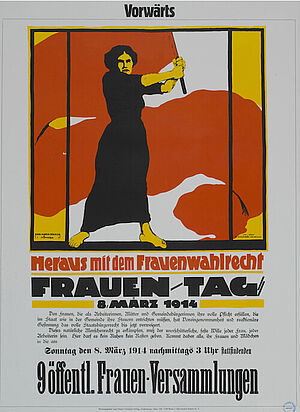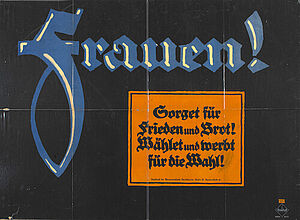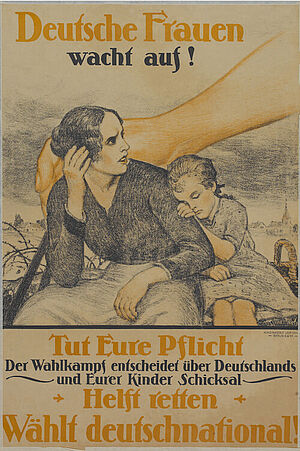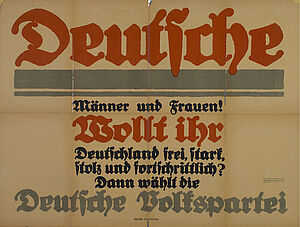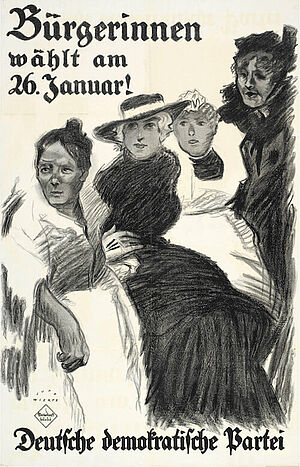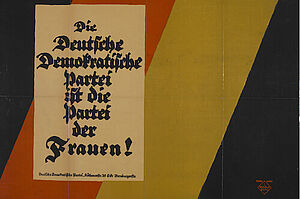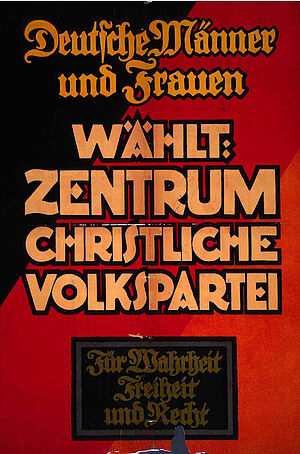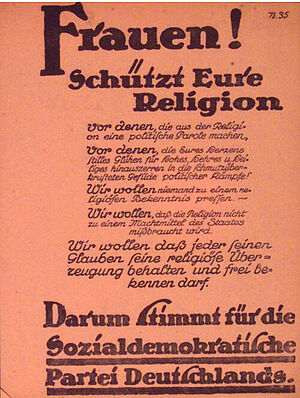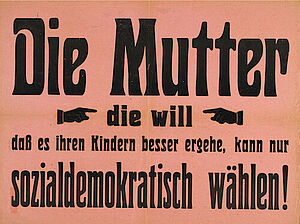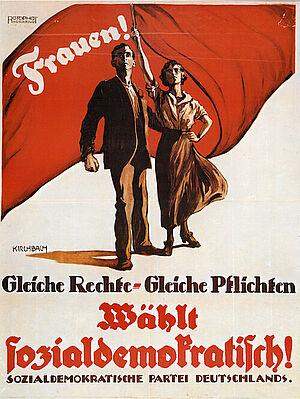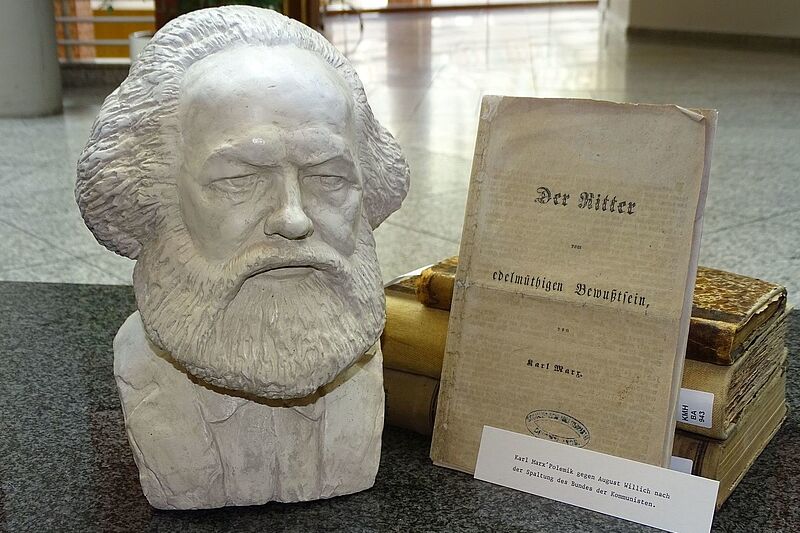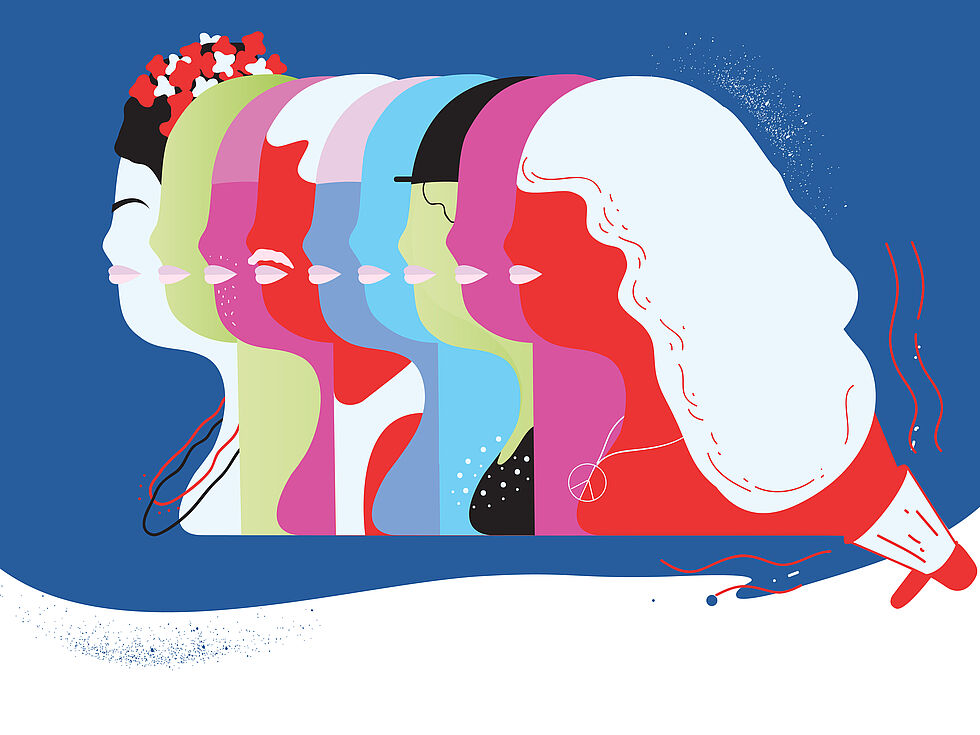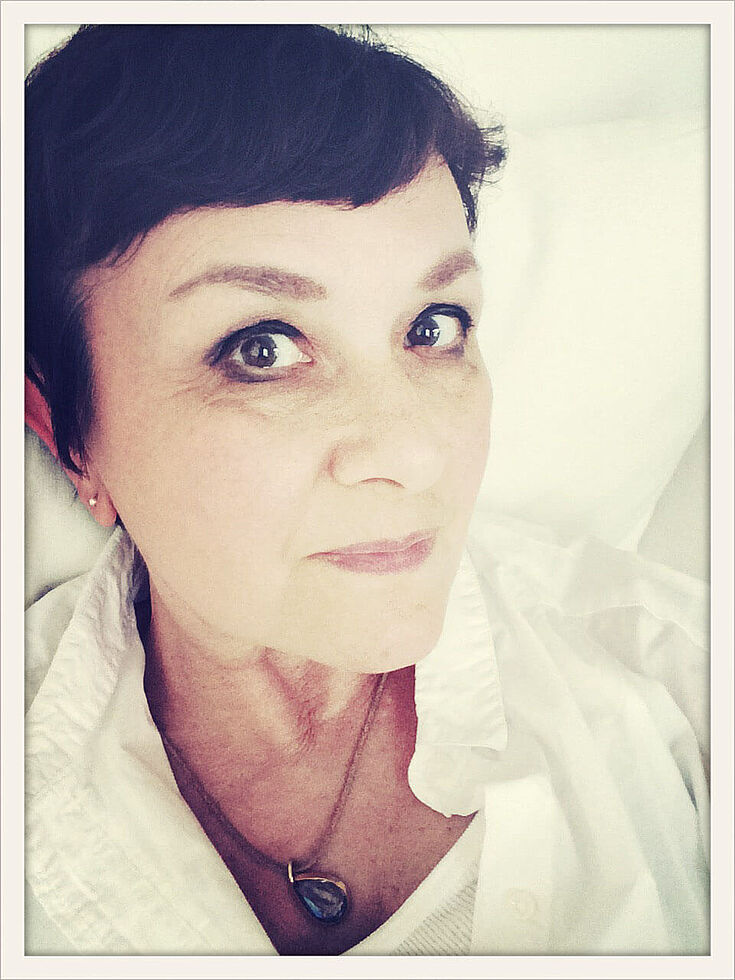Women: A new awakening
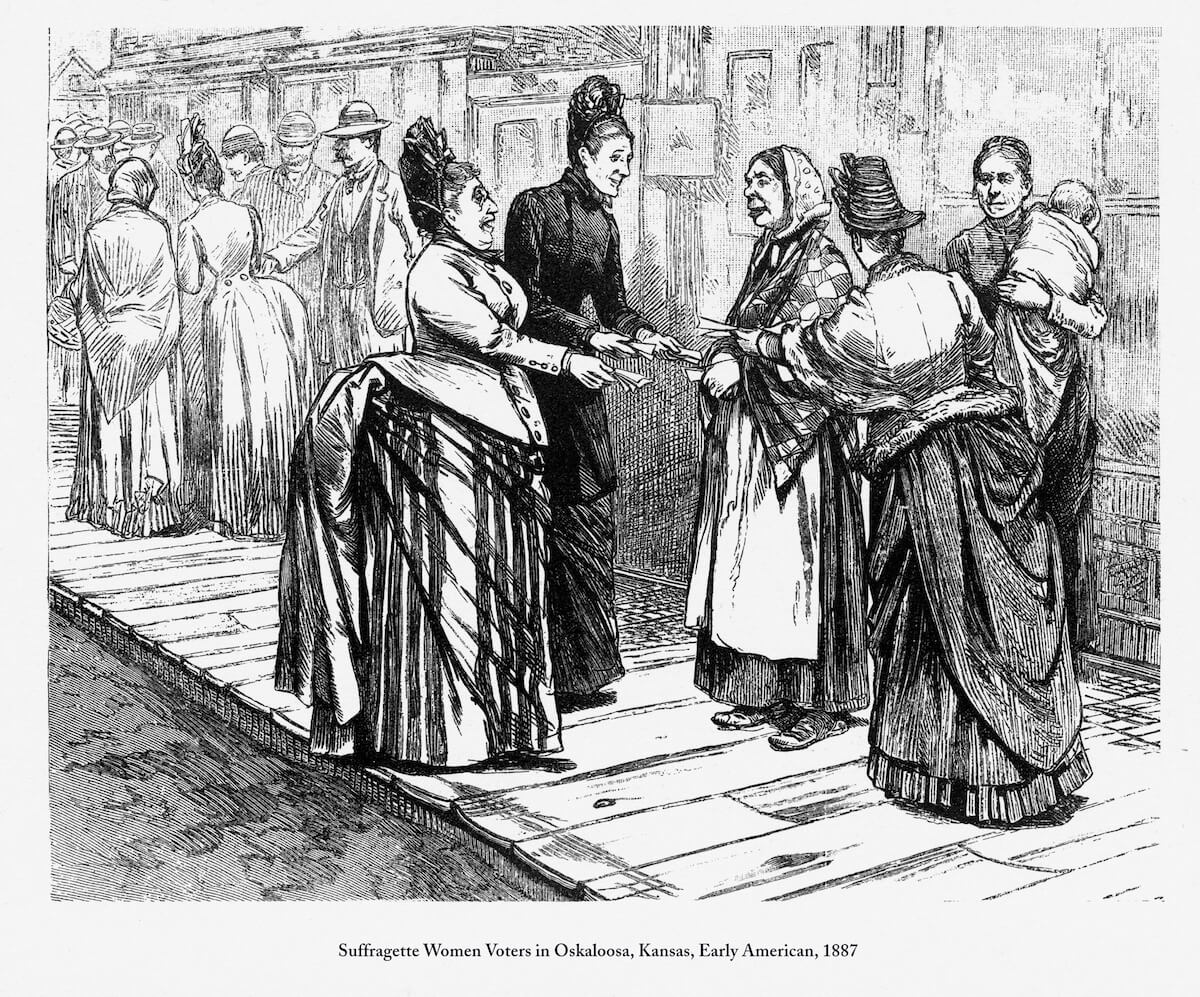
On occasion of the 100th anniversary of women’s suffrage in Germany, the Archives of Social Democracy (AdsD) in Bonn organized an exhibition which displays historic posters used for political campaigns to engage women during watershed political changes in 20th-Century Germany.
The exhibition "Women: A new awakening" shows the campaign for the political participation of women in the three most important democratic political turnovers in the 20th century: The revolution and foundation of democracy 1918/19, the end of Nazism in 1945 with the foundation of the two German states in 1949 and the end of Germany’s division in 1989. They range from general calls for women to vote to campaign posters of specific parties and political associations.
FES Connect in cooperation with colleagues from the AdsD bring you the first module of the exhibition.
The introduction of women’s suffrage in Germany 1918/19
The elections to Germany’s Constituent National Assembly on 19 January 1919 were the first under women’s suffrage, and the poll that launched the first German democracy. These posters illustrate the dawn of German democracy, and the parties’ respective approaches to wooing the newly emancipated women’s vote with targeted messages, even though some parties had opposed women’s suffrage before.
The messages are clearly steeped in the parties’ perceptions of the roles of women, which were stereotypical for the time: They are addressed as mothers, "peaceable beings" and devout Catholics. Following the country’s defeat in the First World War, several parties also refer to them as "Germans", in a bid to conflate women’s national self-esteem with the party’s own identity. However, few of the messages appear to be taking women seriously on a directly political level.
"Heraus mit dem Frauenwahlrecht. Frauen-Tag 8. März 1914"
This slogan from 1914 reads "Get out for women’s right to vote", or "Up with women’s suffrage". It is a call to attend Woman’s Day events, which had been held annually every March since 1911, used by socialist women’s associations to promote women’s suffrage and gender equality.
"Frauen! Sorgt für Frieden und Brot! Wählt und werbt für die Wahl"
"Women! Ensure peace and bread for the country! Use your vote, and tell others to do the same". This call for women voter turnout was published by the Committee of Women’s Associations of Germany, and emphasizes topical concerns of the period immediately following the war.
"Deutsche Frauen wacht auf! Tut Eure Pflicht...Helft retten. Wählt deutschnational"
The conservative German National People’s Party in particular did well out of the new female voters, although they had opposed women’s suffrage before. This campaign poster reads: "German women, awake! Do your duty. The election will determine the fates of Germany and your children. Help [us] to save. Vote German National!"
"Deutsche - Männer und Frauen! Wollt ihr Deutschland frei, stark, stolz und fortschrittlich? Dann wählt die Deutsche Volkspartei"
"Germans – men and women! Do you want to see Germany free, strong, proud and progressive? Then vote for the German People’s Party." After first resisting women’s suffrage, the German People’s Party addressed with this poster its nationalist message to both men and women in explicitly equal terms, the only one in this exhibition to do so.
"Bürgerinnen wählt am 26. Januar! Deutsche Demokratische Partei"
"Women citizens – vote on 26 January! German Democratic Party." In addition to the vote for the Constituent National Assembly, January 1919 also saw elections for the Prussian state-level assembly. Here also, many campaign posters appeared with messages aimed specifically at women voters, by using gender stereotypes or in this case using the feminine form of the German noun for "citizen".
"Deutsche Männer und Frauen. Wählt Zentrum, christliche Volkspartei"
"German men and women. Vote for the Catholic Centre Party. For truth, freedom and justice." This party, known often simply as "Zentrum", was the most significant precursor party of the present Christian Democratic Union (CDU). It represented the Catholic constituency of the former German empire.
"Frauen! Schützt Eure Religion vor denen, die aus der Religion eine politische Parole machen ... Darum stimmt für die Sozialdemokratische Partei Deutschlands"
"Women! Protect your religion – From those, who would (make) turn? religion into a political slogan, From those, who would drag your heart’s yearning for all that is high, noble and sacred into the besmirched battlefield of political strife instead! We wish to pressure no one into religious confession. We do not want to see religion made into a tool of the State’s power. We want everyone to be able to retain and profess their faith [and] their religious conviction. For these reasons, vote for the Social Democratic Party of Germany."
In the first election of the Weimar Republic, the Social Democratic Party of Germany (SPD) opposed the blurring of church and state, which it accused other parties of advocating for, in particular the Catholic Centre Party.
"Die Mutter, die will, dass es ihren Kindern besser ergehe, kann nur sozialdemokratisch wählen!"
"The mother who wants to improve her children’s lot can only vote for the Social Democrats!" The campaign posters of the Social Democratic Party of Germany (SPD) for the elections to Germany’s Constituent National Assembly play like this one on the hope for a new start and social advancement.
"Frauen! Gleiche Rechte - Gleiche Pflichten. Wählt Sozialdemokratisch!"
"Women! equal rights – equal obligations. Vote Social Democrats!" From its very beginnings, the Social Democratic Party of Germany (SPD) has worked towards gender equality. As late as 1917, the demands of the SPD for women’s suffrage in the Reichstag (the German parliament) were rejected by several bourgeois parties.
The exhibition "Women: A new awakening", is accessible free of charge, as are accompanying high-resolution downloads of the posters available online (link in German).
About FES Connect
Connecting people, in the spirit of social democracy, we source and share content in English from the German and international network of the Friedrich-Ebert-Stiftung.
